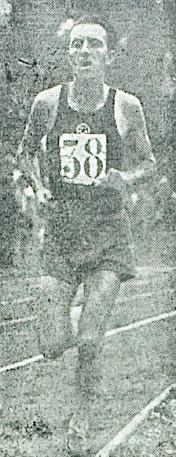Franjo Mihalić
 |
||||||||||||||||||||||||||||
| Personal information | ||||||||||||||||||||||||||||
|---|---|---|---|---|---|---|---|---|---|---|---|---|---|---|---|---|---|---|---|---|---|---|---|---|---|---|---|---|
| Nickname(s) | Jura | |||||||||||||||||||||||||||
| Nationality | Croatian-Serbian | |||||||||||||||||||||||||||
| Born |
9 March 1920 Ludina (part of Kutina), Kingdom of Serbs, Croats, and Slovenes (now Croatia) |
|||||||||||||||||||||||||||
| Died | 14 February 2015 (aged 94) Belgrade, Serbia |
|||||||||||||||||||||||||||
| Residence | Belgrade, Serbia | |||||||||||||||||||||||||||
| Height | 1.75 m (5 ft 9 in) | |||||||||||||||||||||||||||
| Weight | 58 kg (128 lb) | |||||||||||||||||||||||||||
| Sport | ||||||||||||||||||||||||||||
| Country |
|
|||||||||||||||||||||||||||
| Sport | Track, Long-distance running | |||||||||||||||||||||||||||
| Event(s) | 10,000 m, cross country, marathon, road running | |||||||||||||||||||||||||||
| Club | AK Partizan (since 1947) | |||||||||||||||||||||||||||
| Retired | 1966 | |||||||||||||||||||||||||||
| Achievements and titles | ||||||||||||||||||||||||||||
| Personal best(s) |
5000 metres: 14:18.0 10,000 metres: 29:37.6 Marathon: 2:21:24 |
|||||||||||||||||||||||||||
|
Medal record
|
||||||||||||||||||||||||||||
Franjo Mihalić (Serbo-Croatian pronunciation: [fraːɲɔ ˈmixalitɕ]; 9 March 1920 – 14 February 2015) was a Croatian-Serbian long-distance runner best known for his 1958 win at the Boston Marathon and his marathon silver medal in the 1956 Summer Olympics. Mihalić competed mostly in marathons, road races and cross country races, distinguishing himself by winning many top-level international competitions in the 1950s and setting a combined 25 Croatian and later Yugoslavian national records in long-distance track events between 5000 m and 25 km. In 1957, he became the inaugural winner of the Golden Badge, the award for the best sportsperson of Yugoslavia awarded by the daily Sport. He is regarded as the most accomplished male athlete in the history of Croatian, Serbian and Yugoslav track and field.
Mihalić was born in 1920 in the village of Ludina (part of Kutina), in what is today Sisak-Moslavina County, Croatia. His father Josip was a tailor, while his mother Veronika was a housewife. Mihalić was born the tenth of their twelve children. When he was three years old, the family moved to Zagreb.
Mihalić started playing sports at age 10. In 1936, while playing football for the local club NK Grafičar, Mihalić met Stjepan Bobek, three years his junior. At the time, Bobek played for NK Ličanin, Grafičar's main rivals. This was the beginning of a lifelong friendship, as both Mihalić and Bobek (who would become the all-time top scorer for the Yugoslav national football team) were transferred to Belgrade after World War II as Yugoslav star athletes.
...
Wikipedia
